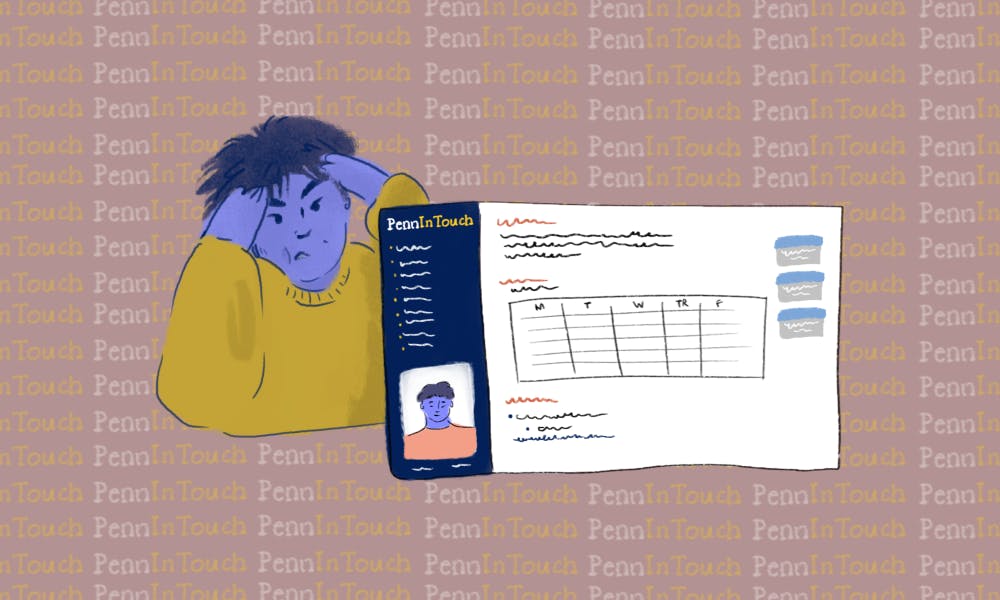
We’ve all been there before. It’s three days before the end of add period. PennInTouch keeps crashing on you. All the courses you want to add are full. That political science course turned out to require 200 pages of reading a week, and you need out. You find one course that seems promising, but it’s already had two homeworks due, and the professor will not budge for any kind of extension.
At the root of this anguish is Penn’s system for course registration. By forcing us to register for courses before we can realistically evaluate them, Penn puts us at a huge disadvantage.
While admittedly most of the Ivy League uses the same broken system as Penn, Harvard and Yale do things differently. Both schools offer a “shopping period” during the first one to two weeks of classes, allowing students to visit and test out classes. At Harvard, students don’t even have to submit their final schedules until the end of the first week of classes.
Shopping period systems do have their drawbacks. Harvard students have complained of crowding in popular courses during this shopping week and the sense of uncertainty created by not setting schedules earlier. Requiring professors to spend the first two or three lectures offering an overview of their course instead of launching into material also results in less time to cover that material during the rest of the semester.

But Penn already has these problems too. I have been in CIS lectures so overcrowded on the first day that students were sitting on the floor, in the aisles, or just standing. Since Penn’s add period is so long, there is still a great deal of uncertainty as to what courses students end up taking. A shopping period would grant students the same freedom of the add period. But this would come without the stress of knowing they are missing important material in courses they want to add.
Another major issue with Penn’s current system is the lack of availability of syllabi. While some courses have links to their syllabus posted on PennInTouch before the semester begins, these can be few and far between, particularly for some majors. Additionally, for courses that have never been offered before or have been significantly reworked, students have no way to gauge how worthwhile taking these courses will be.
Further, the length of Penn’s add period is misleading. It is completely unrealistic to add many courses by the third week of classes; in fact, some courses strictly require all students to attend the first lecture or face losing a significant portion of their grades. This creates a dilemma for students. Trying to shop courses can be a logisitical nightmare, since attending parts of multiple courses that conflict may mean missing vital parts of a lecture.
All of this puts enormous pressure on students to get their schedules right the first time. But if Penn truly values academic exploration, it should also value course exploration by allowing students the freedom to actually try out courses. Under the current system, students are more encouraged to fill their schedules with easy, low-risk courses instead of branching out beyond their comfort zones.
Course shopping could also encourage students to explore beyond their major and to try out fields that they might not otherwise. By having a week dedicated to “selling” their classes, professors can emphasize the interesting material they hope to teach. This could be especially promising for courses that are forced to be cancelled due to low enrollment.
A dedicated shopping period would also ease the transition back into the semester. Students often speak of “syllabus week,” but for many courses, this is a pure myth. Some professors choose to immediately deluge students with work. By forcing professors to treat the first week of classes as a true shopping period, students could get their bearings before plunging into the depths of the material.
A shopping week would grant Penn students something this school desperately lacks: a stress-free period of exploration. So, Penn, let us shop!

TYLER LARKWORTHY is an Engineering junior from McLean, Va. studying Computer Science. His email address is tlarkwor@seas.upenn.edu.
The Daily Pennsylvanian is an independent, student-run newspaper. Please consider making a donation to support the coverage that shapes the University. Your generosity ensures a future of strong journalism at Penn.
Donate







